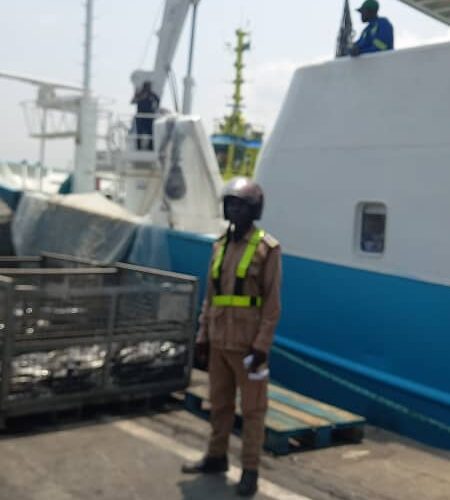
Arc Consult Ltd. are specifically designed to protect vessels, ports, and maritime operations from a range of threats that are unique to the marine environment. This involves safeguarding against piracy, unauthorized access, and other risks that can compromise the safety of cargo, passengers, and crew. Maritime environments pose distinct challenges due to the vast and often remote nature of sea routes and the high value of maritime assets. Arc Consult Ltd. provides comprehensive protection solutions to mitigate these risks. Below is an in-depth look at the components of this service:
Escort Security
Escort security services are designed to ensure the safe and secure passage of vessels through high-risk areas, such as regions prone to piracy or waters with heavy traffic. Arc Consult Ltd. deploys highly trained maritime security professionals who can board vessels to provide armed or unarmed escort services, depending on the threat level and regulatory requirements.
Key features include:
- Vessel Protection: Security personnel are placed on board to deter and respond to any potential threats, including piracy, armed robbery, or hijacking.
- Route Risk Assessment: Before a voyage, a thorough risk assessment is conducted to identify high-risk areas and develop a tailored security plan.
- On-the-Ground Support: Escort security teams coordinate with local authorities, naval forces, and other agencies to ensure smooth passage through territorial waters.
- Protection of Crew and Cargo: The primary goal of escort security is to ensure the safety of crew members and cargo, particularly when transporting high-value or sensitive goods.
Escort security is essential for shipping companies navigating dangerous waters or for private yachts, oil tankers, and cargo vessels traversing international routes.
Physical Security
Physical security in maritime environments focuses on protecting ports, docks, marinas, and offshore installations, such as oil rigs and wind farms. The physical security of these critical infrastructures is paramount because they are susceptible to threats like theft, sabotage, smuggling, and even terrorism.
Key aspects of physical security include:
- Perimeter Control: Security personnel and surveillance technologies are deployed to monitor and secure the perimeter of maritime facilities, preventing unauthorized access.
- Access Control: Strict protocols are enforced to regulate who can enter and exit the premises, whether it’s a dock, a cargo ship, or an offshore installation. This includes verifying personnel, vehicles, and cargo using advanced technologies such as biometric systems.
- Security Patrols: Regular patrols—on land and at sea—ensure that any potential security breach is identified and dealt with swiftly. This might include foot patrols around port facilities, as well as marine patrols to monitor the surrounding waters.
This service is vital for ports and offshore facilities to safeguard against organized crime, smuggling operations, and threats to critical infrastructure.
Marine Security
Marine security focuses on ensuring the safe operation of maritime environments, such as shipping routes, port facilities, and offshore assets, through proactive measures designed to prevent incidents. These services are crucial for commercial shipping companies, port operators, and offshore industries, where the disruption of operations could have severe financial and operational consequences.
Marine security typically includes:
- Anti-piracy Measures: Deploying security teams to protect vessels from piracy, especially in regions where piracy is rampant (such as the Gulf of Aden or the Strait of Malacca). This might involve the use of physical deterrents like razor wire, non-lethal weapons, or armed guards to repel attackers.
- Surveillance and Detection: Advanced surveillance systems, such as radar, sonar, and long-range cameras, are used to monitor sea traffic and detect any potential threats approaching a vessel or facility.
- Emergency Response Plans: Tailored contingency plans are put in place to respond to emergencies at sea, such as hostile boardings, accidents, or natural disasters. Security teams are trained to coordinate rescue operations, emergency evacuations, and crisis management.
- Search and Rescue Support: Marine security teams can assist in search and rescue operations during incidents such as man-overboard situations or when vessels are in distress.
